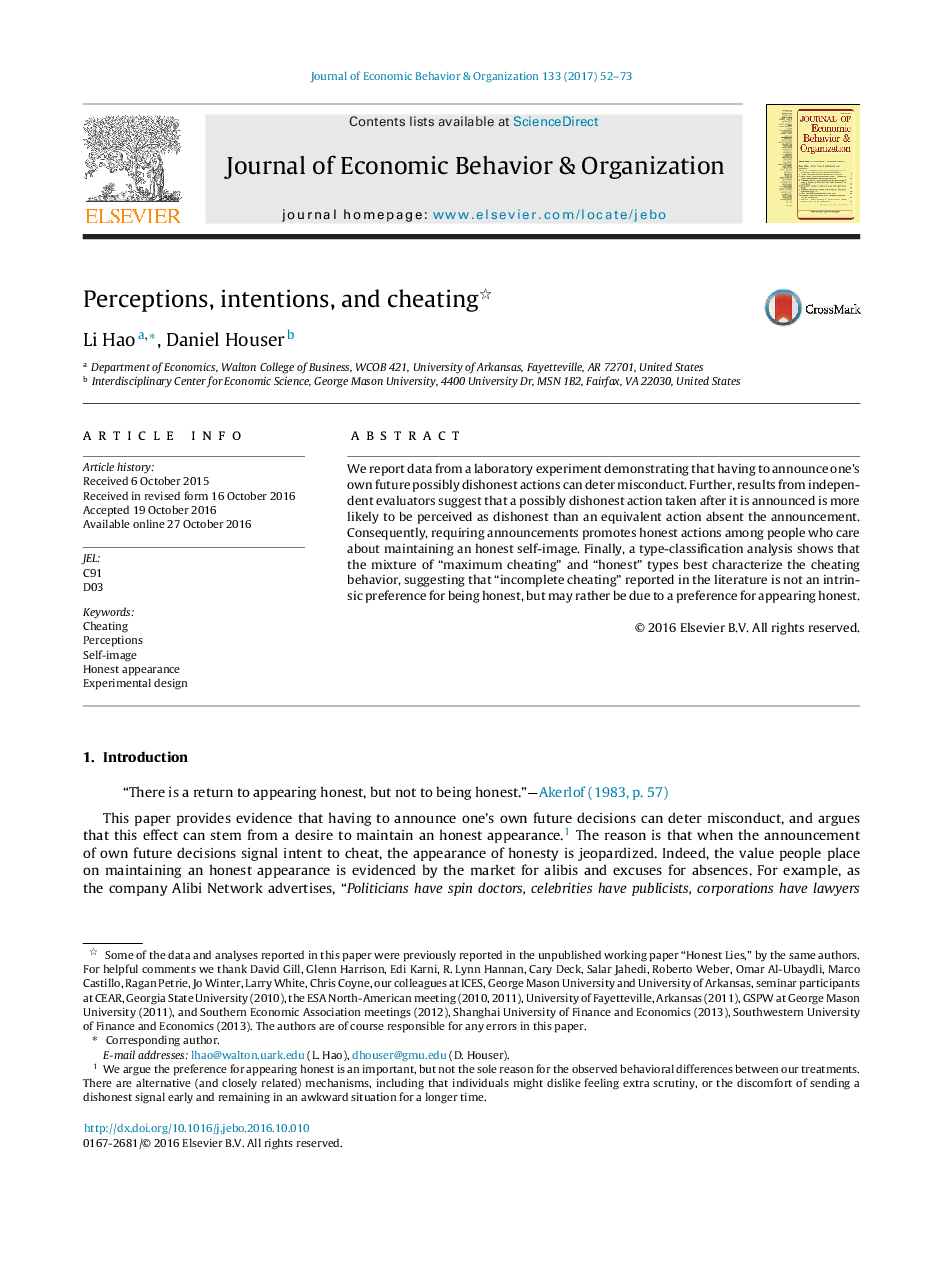| Article ID | Journal | Published Year | Pages | File Type |
|---|---|---|---|---|
| 5034600 | Journal of Economic Behavior & Organization | 2017 | 22 Pages |
â¢Do people cheat less after having to announce their own future actions?â¢Subjects predict die roll outcomes and roll die privately in PREDICT treatment.â¢Subjects hold their prediction until after observe die roll in REPORT treatment.â¢Cheating is significantly lower in PREDICT than in REPORT.â¢Type classification analysis estimates the optimal mixture of cheating types.
We report data from a laboratory experiment demonstrating that having to announce one's own future possibly dishonest actions can deter misconduct. Further, results from independent evaluators suggest that a possibly dishonest action taken after it is announced is more likely to be perceived as dishonest than an equivalent action absent the announcement. Consequently, requiring announcements promotes honest actions among people who care about maintaining an honest self-image. Finally, a type-classification analysis shows that the mixture of “maximum cheating” and “honest” types best characterize the cheating behavior, suggesting that “incomplete cheating” reported in the literature is not an intrinsic preference for being honest, but may rather be due to a preference for appearing honest.
